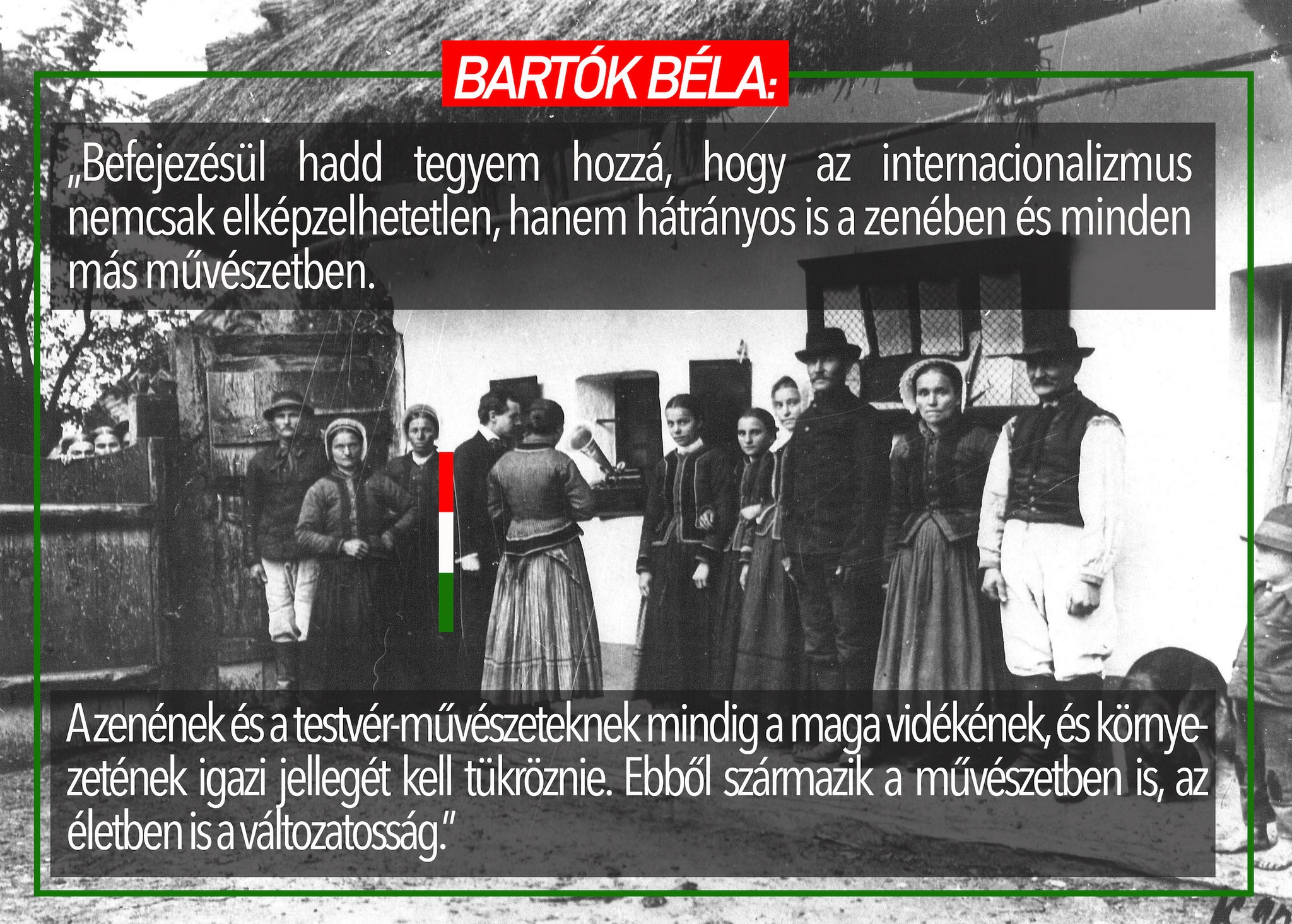"Throughout my life, in every field, at all times and in every way, I will serve one goal: the good of the Hungarian nation and the Hungarian homeland."
Béla Bartók, the greatest figure of the Hungarian music scene, died on 26 September 1945.
His piano playing and compositions already dazzled his contemporaries, but for future generations the collection and systematisation of the treasures of Hungarian folk music is perhaps even more important than his lasting works. He himself considered this activity to be the most important in his oeuvre, and thus, as his composing career developed, the influence of folk music became more and more prominent in his works.
Béla Bartók was born on 25 March 1881 in Nagyszentmiklós, and he inherited his culture and love of music from his family background. After graduating from the Academy of Music, he regularly visited Hungarian villages from the beginning of the century, collecting folk songs and folk music, which have remained as an intact imprint of ancient cultural treasures. His work became impossible after the dismemberment of the country following the Treaty of Trianon, as he was unable to obtain visas from the successor states and thus to reach the areas where folklore traditions had survived most intact until the twentieth century. He continued to visit the villages of the fragmented country, collecting and analysing the folk music treasures of the neighbouring peoples, finding that they were greatly influenced by the ancient Hungarian musical culture. He won the acclaim of the contemporary public with the premiere of the ballet The Wooden Prince and the opera Bluebeard's Castle.

The later misrepresentation of his political views stems from the fact that he briefly became a member of the Music Directorate during the Hungarian Soviet Republic, but in fact, until the last minute of his life, he kept as much distance from the anti-life and anti-human ideology of Communism he did from the murderous ideology of Nazism. A long letter he wrote about his experiences on a concert tour in the Soviet Union in 1929 bears witness to this. His insightfulness and unbiased objectivity are evident in his lines, which vividly portray the reality of deprivation and terror that pervaded everyday life.
Throughout his life, Béla Bartók's love of his country and nation and his attachment to his homeland and its culture remained with him, so perhaps the most painful realisation for him was that he would have to die far from home, as a guest of a foreign country. Contrary to misconceptions, Bartók did not emigrate from Hungary, but travelled to the United States in 1940 for an extended period of concert tours and teaching. He never applied for citizenship and would have liked to return to his homeland, but his illness prevented him from doing so. He died in New York a few months after the end of the Second World War. The motto of his work and his life can be summed up in this quote from him:
"THROUGHOUT MY LIFE, IN EVERY FIELD, AT ALL TIMES AND IN EVERY WAY, I WILL SERVE ONE GOAL: THE GOOD OF THE HUNGARIAN NATION AND THE HUNGARIAN HOMELAND."
Béla Bartók died 77 years ago.
The picture shows Béla Bartók collecting folk music in the village of Zobordarázs, Northern Hungary in November 1907. Quote: The National Temperament is Music. The Musical Times, 1 December 1928 issue, page 1079 (Hungarian translation by István Barna)
We thank Gábor Vásárhelyi, Béla Bartók's legal heir, for the quote and the picture.